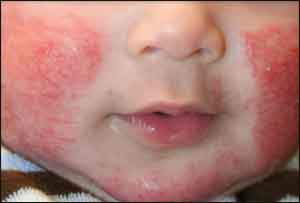- Home
- Editorial
- News
- Practice Guidelines
- Anesthesiology Guidelines
- Cancer Guidelines
- Cardiac Sciences Guidelines
- Critical Care Guidelines
- Dentistry Guidelines
- Dermatology Guidelines
- Diabetes and Endo Guidelines
- Diagnostics Guidelines
- ENT Guidelines
- Featured Practice Guidelines
- Gastroenterology Guidelines
- Geriatrics Guidelines
- Medicine Guidelines
- Nephrology Guidelines
- Neurosciences Guidelines
- Obs and Gynae Guidelines
- Ophthalmology Guidelines
- Orthopaedics Guidelines
- Paediatrics Guidelines
- Psychiatry Guidelines
- Pulmonology Guidelines
- Radiology Guidelines
- Surgery Guidelines
- Urology Guidelines
Reported penicillin allergy increases the risk of surgical site infections

A study by Massachusetts General Hospital (MGH) investigators found that surgical patients believed to be allergic to penicillin were significantly more likely to develop surgical site infections than were patients with no documented allergy, a difference totally attributable to the alternative antibiotics used to prevent such infections. The study is receiving online publication in Clinical Infectious Diseases to coincide with presentation of the data at the IDWeek 2017 conference.
"This study has direct clinical significance," says Kimberly Blumenthal, MD, MSc, of the Division of Rheumatology, Allergy and Immunology, the Medical Practice Evaluation Center, and the Lawrence Center for Quality and Safety at MGH, lead and corresponding author of the report. "We already know that more than 95 percent of patients who believe they have penicillin allergy can actually tolerate the drug, which indicates that preoperative penicillin evaluation could effectively reduce surgical site infections in these patients."
The authors note that 40 percent of health-care-related infections in hospitalized patients occur at the site of surgical incisions, and such infections can lead to complications and even death. They also significantly increase health care costs, with treatment of the average infection exceeding $25,000, and influence patients' perceptions of the quality of care they receive, something that can directly affect hospital reimbursement. Reported penicillin allergies have been associated with increased health-care-related infections, but no previous study has analyzed a potential impact on surgical site infections.
Blumenthal and her colleagues reviewed the medical records of almost 8,400 patients who underwent common surgical procedures - hip or knee replacement, hysterectomy, colon surgery and coronary artery bypass - at the MGH from 2010 through 2014. Of that total, 922 patients had penicillin allergy noted in their medical record, a proportion similar to that of the general population. Overall 214 patients developed a surgical site infection: 3.5 percent of those with documented penicillin allergy compared with 2.6 percent of those without.
After adjustment for factors such as age, sex, race and the type and duration of surgery, the risk of a surgical site infection was found to be 50 percent higher in patients with a reported penicillin allergy, and the only factor clearly associated with infection risk was the type of antibiotic patients received. A review of available information about the reactions leading to the patients' allergy diagnoses revealed that practically all of them could have safely received standard testing for penicillin allergies. Only five had the kinds of severe hypersensitivity reactions that would rule out such testing.
Since current guidelines suggest that patients with a documented penicillin allergy not receive cefazolin, the standard antibiotic used to prevent surgical site infections, such patients often receive drugs such as clindamycin, vancomycin and gentamicin, which are known to be less effective against these infections, the authors note. Vancomycin additionally requires a longer infusion time than cefazolin, so the increased infection rate could also relate to the fact that practically all the presumed penicillin-allergic patients treated with vancomycin may have received it too close to surgical initiation for full effectiveness.
Blumenthal and her colleagues - including senior author Erica Shenoy, MD, PhD, of the MGH Division of Infectious Diseases and the Infection Control Unit, who is presenting the study at ID Week - have discussed their findings with surgical and anesthesiology leadership at MGH, and several groups have added outpatient allergy testing for patients with recorded penicillin allergies scheduled for elective surgeries.
Shenoy says, "We hope our findings spark reconsideration of the language about penicillin allergy testing in the national guidelines. In the meantime, I would recommend that any patients with a history of allergy to penicillin or to cephalosporins - the antibiotic class that includes cefazolin - who are scheduled for surgery to ask their doctor whether an antibiotic would be needed and, if so, discuss a referral for an allergy evaluation in advance to increase their chances of getting the most effective antibiotic."
For more details click on the link : http://dx.doi.org/10.1093/cid/cix794

Disclaimer: This site is primarily intended for healthcare professionals. Any content/information on this website does not replace the advice of medical and/or health professionals and should not be construed as medical/diagnostic advice/endorsement or prescription. Use of this site is subject to our terms of use, privacy policy, advertisement policy. © 2020 Minerva Medical Treatment Pvt Ltd